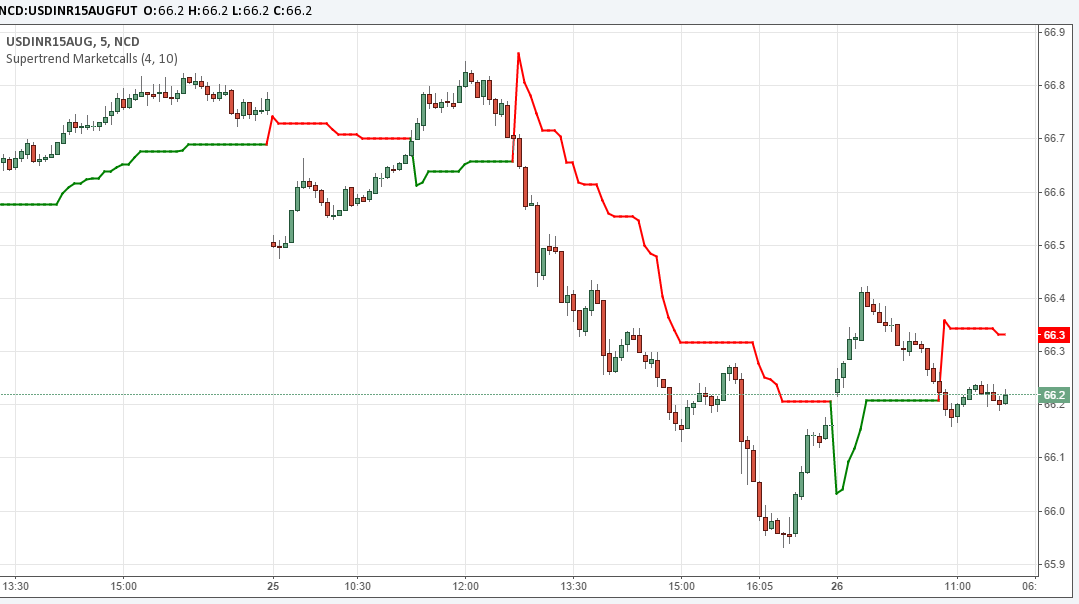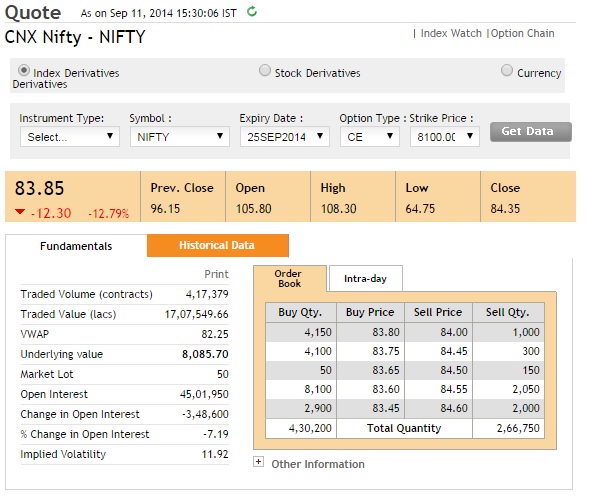When it comes to investing, many paths lead to potential financial success. Among them, options trading stands out as an alluring avenue for those seeking to navigate the complexities of the stock market. In this comprehensive guide, we’ll delve into the intricate world of options trading, unravel its mechanisms, and explore its significance within the National Stock Exchange of India (NSE).

Image: www.marketcalls.in
What is Options Trading in the NSE?
At its core, options trading revolves around contracts that grant the buyer the right, not the obligation, to buy or sell an underlying asset at a predetermined price and within a specified time frame. These contracts are exchange-traded, meaning they’re standardized and regulated by the NSE, ensuring transparency and fairness in the trading process.
The beauty of options trading lies in its versatility. Traders can either speculate on the future movement of the underlying asset or use options to hedge their investments, reducing their overall risk exposure. The NSE offers a wide range of options contracts, catering to diverse investment strategies and risk appetites.
Call Options and Put Options
Options contracts come in two primary flavors: call options and put options. Call options give the buyer the right to buy an underlying asset at a set price on or before the contract’s expiration date. In contrast, put options provide the buyer with the right to sell the underlying asset at a predetermined price within the contract’s term.
Key Concepts in Options Trading
To fully grasp options trading, it’s essential to understand a few key concepts:
-
Option Premium: The price paid to acquire an options contract, representing the cost of the option’s rights.
-
Strike Price: The price at which the underlying asset can be bought (for call options) or sold (for put options) as per the contract.
-
Expiration Date: The date on which the options contract expires, rendering it void.
-
Underlying Asset: The asset (stock, index, commodity, etc.) on which the options contract is based.
By understanding these concepts, traders can make informed decisions and navigate the complexities of options trading effectively.

Image: www.cashoverflow.in
Benefits and Risks of Options Trading
Benefits:
-
Limited Risk: Unlike futures contracts, options buyers have limited risk to the premium paid.
-
Leverage: Options offer high leverage, allowing traders to control large positions with a relatively small capital outlay.
-
Hedging Tool: Options can be used to reduce the risk of existing investments, serving as a valuable hedging instrument.
Risks:
-
Premium Loss: If the market moves against the trader’s expectations, they may lose the entire premium paid for the options contract.
-
Expiration Risk: Time is of the essence in options trading. Failing to exercise or sell the option before its expiration can result in the contract becoming worthless.
-
Complexity: Options trading can be a complex endeavor, requiring a solid understanding of financial markets and risk management techniques.
Expert Insights on Options Trading
“Options trading provides a unique opportunity for investors to enhance their potential returns and manage risks. However, it’s crucial to approach options trading with a disciplined and responsible mindset, thoroughly understanding the underlying concepts and managing risk effectively.” – John Smith, Financial Expert
“Traders should consider their individual risk tolerance and investment objectives before venturing into options trading. It’s advisable to start with small positions and gradually increase exposure as they gain experience.” – Jane Doe, Investment Analyst
What Is Options Trading In Nse

Image: ticacoqaxise.web.fc2.com
Conclusion
Options trading in the NSE presents both opportunities and challenges for investors seeking to navigate the financial markets strategically. By embracing the concepts explained in this article, understanding the risks involved, and seeking guidance from experts, traders can leverage options trading to potentially increase their investment returns while effectively managing their risk exposure. Remember, investing involves risks, and it’s essential to approach any investment decision with prudence and seek professional advice when necessary.






